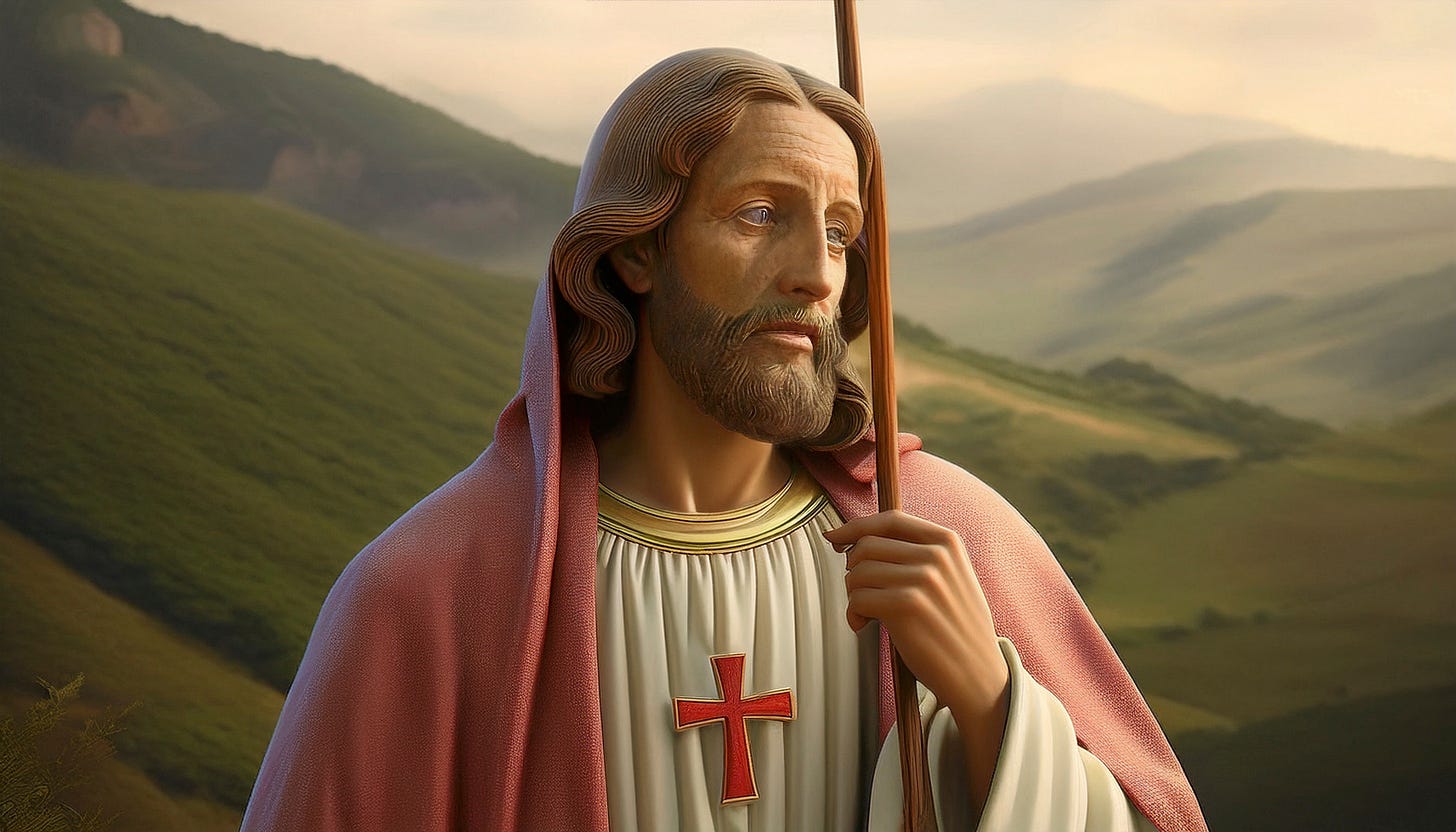A Passing of Note
What's in a Name?
The day after Easter this year, a mortal named Jorge Mario Bergoglio died. He’d spent the last eleven years of his life serving one particular expression of the Christian faith tradition, under the assumed name Francis. The “Holy Father” chose the adopted name to remember and try to emulate certain human virtues once expressed by a 13th C. friar who had been posthumously elevated to sainthood. One might wonder why no Pope before the late-Pope Francis adopted that name. Better yet, why did Jorge choose it?
The stories about the former Francis – elevated to sainthood by the ecclesiastical church of Rome in 1228 CE, and just two years after his death – are legendary. Those human virtues attributed to him were his care of the poor and marginalized (including the role of women in the social order), and the love of nature and environmental concerns. Sound familiar?
So, there is the tale about this first Francis, who originally – in his lifetime – went by the name Giovanni di Pietro di Bernadone. He’d been wandering the Umbrian hills, before entering the sanctuary of a crumbling church in Assisi (Italy). Transfixed by an icon there of a crucified Jesus that seemed to be staring at him, he asked what he should do? Who should he be? “Rebuild my church,” was the reply he heard.
Was he supposed to physically repair the church of San Damiano? Or -- as in any transformative or spiritual moment – was he not supposed to interpret such a religious calling literally, but symbolically or metaphorically?
It’s interesting to note that nowadays every pilgrimage to Assisi includes time spent in the sanctuary of San Damiano. But then that’s not just the end of a journey, but rather a new beginning. Where will each pilgrim’s sojourn presumably take them next, and to be who, and do what?
Likewise, as the Catholic cardinals gather now to presumably not only expedite their last papal leader to sainthood, they are also already debating whether they will continue in the more progressive direction of the two former Francis figures; or revert to simply repairing the crumbling façade of a former past.
But to be sure, the underlying question and point is even more universal; and is just as applicable to those who of us may not be of that particular example or denominational (catholic) persuasion. So …
What’s in a Name?
A Personal Sharing
Pope Francis’ original name was Jorge, a Spanish name that means “earth-worker.” And, from the Latin, the word ‘francis’ means “free man.”
So, what’s in a name? Your name, my name, maybe a nick name given us, or another name you might assume -- with the choice to do so -- and why?
The name I was given derived from my two grandfathers, John Arthur Haglun and Floyd William Bennison. Fortunately, I got John William, instead of …. But the nickname my own father used to call me was the Greek pronunciation of my name John, Ionnes (Gr. Ιωάννης), which means “God is gracious.”
And, my last name is an old English word that means “blessing” or “divine favor.” In Shakespeare's play, "Macbeth," the old character uses the word when he blesses Ross and bids "God's benison go with you" (Act 2, Scene 4). With a name like that -- I used to jest -- how could I do and be anything but a cleric?
So, for two dozen years, I once pastored a congregation known as St. John’s Parish; named after the fourth Evangelist in the New Testament. But the standard gag line when I would answer the office phone was, “Hello, St. John’s, John speaking ….” While I doubt I’ll ever be elevated to sainthood -- just as a bygone past need not be renovated or resurrected -- I remain mindful of the name by which I am still called and blessed.
My pilgrimage remains defined by following the life and teachings of that Galilean peasant sage; who was given the Hebrew name Yehushua (Jesus), meaning “God saves.” “God?”
Again, such a term represents something more than a crumbling facade; but instead whatever our human imaginations might discern to be divine, when taken metaphorically, not literally.
With such a reminder — in both mind and spirit — I am often and gently persuaded of my calling and the name given me by a single verse from the Psalter; as well as one verse from a hymn I still regularly hum or murmur:
“So teach us to number our days, that we may apply our hearts to wisdom.” (Psalm 90:12)
And,
“So, order too this life of mine, direct it all my days,
The meditation of my heart, be innocence and praise.
My rock and my redeeming Lord, in all my words and ways.”
based on Psalm 19, by hymnwriter Timothy Dudley Smith (1926-2024)
You can pass this commentary along to anyone who might appreciate it, and they can subscribe for free, if they wish (below).
To learn more about this writer, click Here. To read more commentaries by John Bennison from the perspective of a Christian progressive go to the Archives Here.
© 2025 by John William Bennison, Rel.D. All rights reserved.
This article should only be used or reproduced with proper credit.




